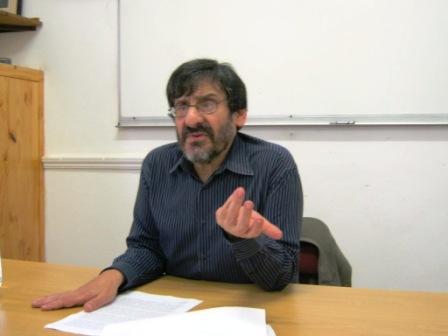
There are few more certain causes of disaster than those who insist we can progress only if we have certainty. The African National Congress (ANC) policy conference did little to take us forward. But some of the reaction to it did much to take us backward.
Although it produced no new proposal that would threaten property rights, it was followed by warnings from rating agencies and analysts that business was under threat. Because the ANC did not promise never again to talk about nationalisation or any other threat to property, these oracles insist that the left-wing coup of which we have heard so much these past five years is still possible - particularly since reports confirm that some in the ANC are still demanding the measures the analysts fear.
It is hard to think of an approach more out of touch with reality and with the workings of a free society.
Anyone who understands the history and make-up of the ANC would not expect it to stop its members talking about curbs on property rights. The ANC alliance includes both left-wingers who distrust business and racial nationalists who want to shift more assets from white to black hands. Both have an interest in restricting property rights.
Not only are these two strands still alive in the ANC but they have led it for decades and they express much of what the ANC has been since the 1950s. To expect them to be silenced is like expecting a church to muzzle those who take the scriptures literally.
We have had nearly two decades of market-friendly policies because, once apartheid ended, many in the ANC discovered that living with business worked better for them than fighting it. That is still the majority view. But that does not mean that the other view has gone away.
Because those who want to live with business dominate (partly because many of them now hold shares in businesses), nothing will be nationalised. And any controls on property rights will be negotiated with business - the government will take business interests into account if they ever become law.
Will people in the ANC still talk about nationalisation and other controls? Of course. Does that mean any of this will necessarily happen? Of course not.
The rational business approach, therefore, was that spelled out by one of the few sane voices to respond to the ANC conference, AngloGold CEO Mark Cutifani. He argues that business must engage with the ANC if it wants policies that work for it. That does not mean agreeing to any policy the governing party proposes, but it does mean recognising that arguments have two sides and that you cannot win a debate unless you take the other side's position seriously.
Cutifani presumably realises what many business opinion-shapers want us to forget - that a proposal is not a policy and that the fact that some people talk about a policy option does not mean that their organisation is going to adopt it.
If the demand for certainty means - as it now seems to - that the business environment is in peril unless the ANC silences those whose views displease rating agencies and analysts, business will always be weighed down by a false alarmism that will make progress seem like setbacks. But if there is a recognition that, given society's and the ANC's history, the remarkable story is not that there is talk of curbs on property rights but that there is room to negotiate policy, realistic business strategy becomes possible.
The people who demand certainty are not prompted by foolishness or naivety. The problem, rather, is their deep distrust of democracy. For them, there is only one economic truth - the one in which they believe. Those who hold another view are not people who differ - they are knaves and fools. And so, for them, the issue is not how to persuade those who differ to see their point of view. Still less is it to seek compromises between their view and the opposing position. Progress is only possible if the other view is silenced.
If this judgment seems harsh, how else to explain a position that sows alarm in business not because the ANC has said it plans to do something, but because some of its politicians are still talking about that something and it has not silenced them?
There is a great irony in this. A few decades ago, this view was very common among Marxist-Leninists. Then, it was the Leninists who owned the truth and anyone who felt markets had a role was deluded and dangerous. Marxism was meant to be a science that was going to save us all, and so anyone who disagreed with it was ignorant and a danger to society. Today, free markets are meant to be a science that will save us all and their advocates adopt the same attitudes as Leninism did then.
We all know what this set of attitudes did for Leninism. The sort of market fundamentalism currently on display could well do the same for dogmatic reliance on markets.
- Friedman is director of the Centre for the Study of Democracy at Rhodes University and the University of Johannesburg. This article was published on Business Day.

